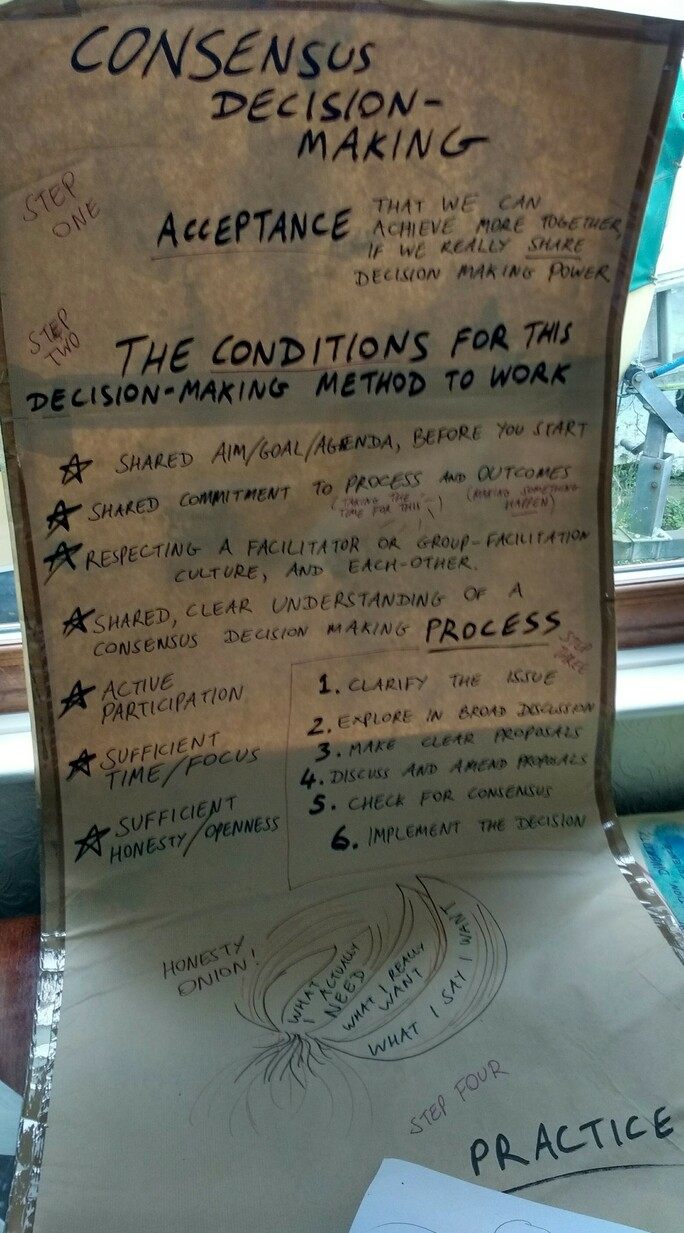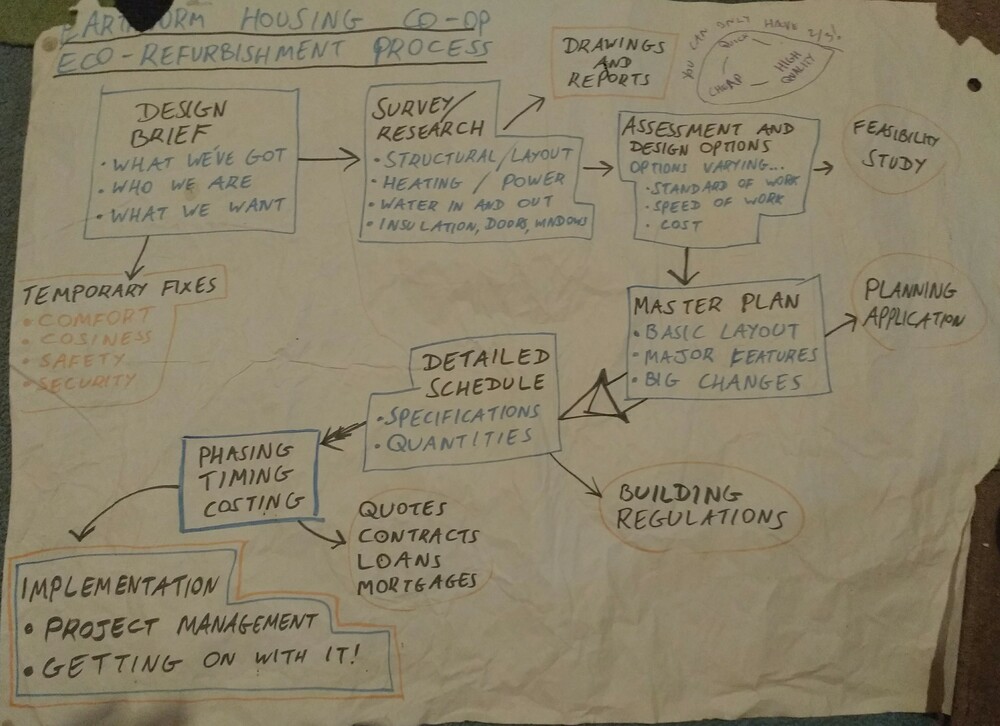 During our Co-op meetings, we try to reach decisions by consensus. Consensus for us means:
During our Co-op meetings, we try to reach decisions by consensus. Consensus for us means:
- Where possible find solutions that everybody is happy with.
- If that's not possible find solutions that everyone can live with & nobody objects to.
- If that's not possible we stay with the status quo.
- If that's not possible (i.e. we have to make a change) we vote as per our primary rules, but in effect, it has never come to a vote, since 2011, perhaps it never will.
Consensus Decision Making works best with:
Active participation: If we want a decision we can all agree on, we all need to play an active role in the decision making.
Common Goal/shared aims: Everyone at the meeting needs to be united in a clear, common goal.
Clear Process: Everyone needs to share an understanding of how consensus is being used. In most meetings there should be one or more facilitators* to guide the group through the process.
Commitment to reaching consensus on all decisions: It would be very damaging if individuals secretly want to bring on majority voting.
Trust and Respect
Time: Sharing power and ownership is challenging stuff and takes care and practice, but those conditions add up to a more intelligent and fulfilled group-mind than a voting process, and building that co-operative culture takes more TIME than majority voting or dictatorship!
*Facilitator - Each meeting has a nominated facilitator, who is empowered by the agenda and the group, to keep discussions, proposals and minuting on track. The minute taker is an equally important role, producing a record of discussion, decisions and action points. We try to rotate both roles and can swap these jobs around even inside the same meeting sometimes. In our meetings, the facilitator gets as much say in go-rounds and discussions as any other participant.

We meet for at least 2 hours every month, and have agendas, proposals, minutes and discussions ongoing by e-mail between meetings too, but decisions are rarely made outside of meetings. In meetings, we roughly follow this structure:
Step 1 Clarify the Issue (hopefully done in the agenda, circulated before the meeting)
Step 2 Explore each person's initial take on the issue, usually done with everyone talking in turn, in “go-rounds”.
Step 3 Make Clear Proposals (again, often begun in the agenda)
Step 4 Discuss and amend proposals
Step 5 Check for Consensus. Repeat steps 1-5 if no consensus reached.
Step 6 Implement the Decision. (We generate action points and volunteer to do them, right then and there, in the meeting.)
Other important parts of Consensus Culture at Earthworm Housing Co-op.
Meetings are called with at least a fortnight's notice, and everyone learns how to contribute to the agenda beforehand, making it clear where a general discussion or a clear proposal, a solid decision or just a clear little broadcast of some information needs to be made.
As well as agendas, which generate minutes, meetings also generate "action point lists", which make it super clear who has signed up to do what, and by when. These are checked over at each meeting, so if someone isn't getting round to doing something they said they'd do, that is easy to see and deadlines might be extended or tasks handed over or spread out, with transparency and care. Minutes also have a "Decision Summary" at the top, so it's easier to find things in the future, or revise discussions before addressing the same topic again in a new meeting.
The aim of our process is to be efficient with each other’s time, accountable to each other and our agendas, and we rotate the roles of compiling the agenda, facilitating the meeting and writing up the minutes. We aspire to genuinely share power and ownership, as a fully mutual housing co-op is designed to do.